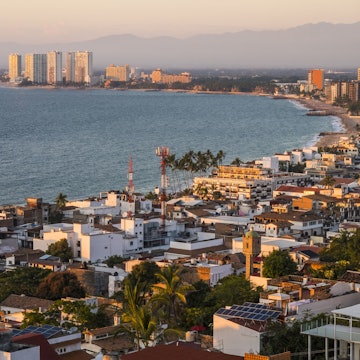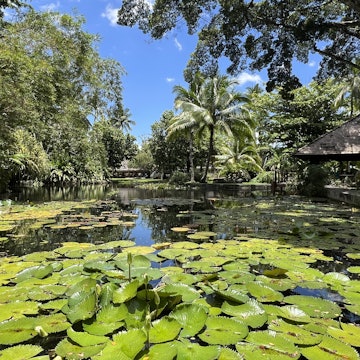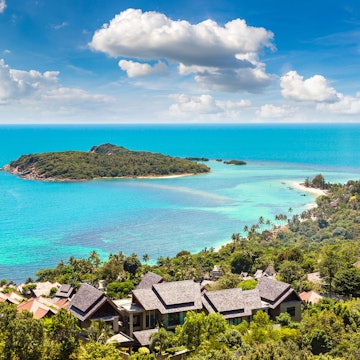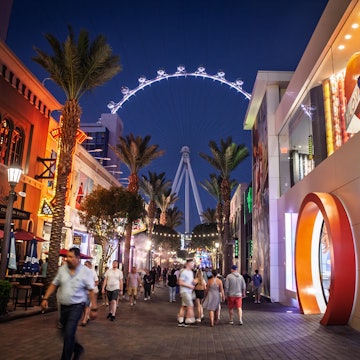
US-Cuba travel: what you need to know about Trump's new policies

Jun 26, 2017 • 6 min read

US- Cuba relations have rarely been straightforward. The path to improvement is often a case of two steps forward, one step back. After several years of rapprochement, new travel regulations announced by the Trump administration on June 16, 2017, appear to have stymied some of the progress. But what do the changes really mean for US travelers?
Here are some questions and answers to help clear the fog.

Do the new rules completely reverse the historic opening negotiated by the Obama administration between 2014 and 2016?
No. US citizens can still apply for a ‘general license’ to travel to Cuba if they fall into one of 12 different categories listed by the Office of Foreign Assets Control (OFAC).
Furthermore, US citizens can still travel to Cuba on authorized cruise ships and authorized people-to-people trips.
Scheduled flights between the US and Cuba will also continue and the US will retain its embassy in Havana, reopened after 54 years in 2015.
What is a general license?
The US government issues two sorts of licenses for travel to Cuba: ‘specific’ and ‘general’. General licenses are self-qualifying: it is up to the individual to evaluate if they satisfy the license requirements and collate the necessary documentation to back it up (itineraries, receipts, etc.). Although no specific application forms are required for a general license, airlines, cruise companies and authorized travel service providers usually require US travelers to sign a ‘travel affidavit’ (a sworn statement) stipulating their license category when they book. While the nature of your travel activity in Cuba may never be questioned or monitored, it is wise to keep track of all your paperwork just in case.
So, what changes has the Trump administration made?
The US government is rolling back changes made by the Obama administration in March 2016 when individual ‘people-to-people’ trips were authorized. This led to an explosion of US citizens traveling to Cuba in the ‘educational’ license category. The Trump announcement states that ‘non-academic educational travel’ will be limited to officially sanctioned group travel. Travelers on these organized trips must keep a full record of the educational events they partake in.
The measure also bans financial dealings with GAESA, the Cuban military body which manages the bulk of the country’s tourist industry, including most state-run hotels, car rental agencies, restaurants, marinas and tours.
A new US Department of the Treasury factsheet explains the changes in full (www.treasury.gov).

Do the changes take effect immediately?
No. If you arranged your trip before the June 16, 2017, announcement, you can continue with your travel arrangements as before. The new rules will be activated in 90 days, meaning things should become a little clearer in the early fall.
What does this actually mean for US travelers?
On the surface, the measures roll-back the light-handed approach of the Obama era. Over the past 15 months, many independent US citizens have traveled to Cuba on loosely interpreted ‘educational’ visits with no repercussions. This will no longer be possible.
The new rules also hint that US travelers returning from Cuba could be more closely audited. As a result, Cuba-bound travelers should be particularly wary which license category they are applying for and meticulously log all of their transactions in Cuba. This includes keeping records of trip notes and receipts for five years.
The ban on dealings with GAESA, effectively prohibits Americans from staying in most of Cuba’s state-run hotels managed by the Gaviota brand (including the historic hotels in Havana). Ideally, Americans should steer away from any transactions with the state-run economy and veer instead toward privately-run restaurants, casas particulares (homestays), and private shops and markets.
What do the changes mean for Cuban tourism?
The language of the announcement will likely sow a certain amount of confusion, cooling the recent surge of US tourists to Cuba (over 600,000 Americans visited in 2016, a 34% increase on 2015). However, it remains to be seen how strictly the rules – both new and old – are enforced, and how the US government will interpret the many grey areas.
With a fall in US demand, the Cuban government may be forced to slash hotel prices, which have risen to historically high levels. US airlines flying to Cuba, may also be forced to cancel flights should demand fall significantly. It is likely that small private businesses in Cuba will be negatively impacted by the inevitable fall in tourist revenue.

How do you organize flights/trips to Cuba from the US?
Scheduled commercial flights between the US and Cuba were reinstated in September 2016 when JetBlue flight A320 from Fort Lauderdale landed in Santa Clara. As of 2017, there are over 100 commercial flights a week operating between the US and Cuba, though these numbers may be reduced once the new travel policy goes into effect.
It is still possible to fly to Cuba on charters organized through an authorized travel service provider. Top companies include Cuba Travel Services (cubatravelservices.com), ABC Charters (abc-charters.com) and Marazul (marazul.com).
Now that individual 'people-to-people' trips will no longer be permitted, organized group trips will likely become the primary way casual US travelers visit Cuba. Several companies offer full-blown cultural holiday packages that include flights, accommodation and guides. Authorized agents handle the license paperwork, leaving participants with fewer legal worries. Insight Cuba (insightcuba.com) is a well-established, registered people-to-people operator.
Can US travelers still book accommodation on Airbnb?
Qualifying US travelers can still book homestays all across Cuba in advance with a credit card on Airbnb. There is nothing in the new regulations to suggest this will change.
Do you need a visa?
All foreign visitors need a ‘tourist card’ to enter Cuba, usually available from the airline or cruise ship you book with. Costs vary depending on the company but average around US$85. When booking your flight, be sure to ask the airline about their tourist card policies. Sometimes cards can be purchased at the departure airport, or they might need to be mailed to you. If you fly from Canada, tourist cards are generally given out on the airplane.
Do US credit and debit cards work in Cuba?
Despite optimistic announcements in 2014, barely any US or US-linked credit cards and debit cards work in Cuba. If you’re American, expect to be heavily reliant on cash. Cuban currency, known as convertibles (CUC$), is pegged to the US dollar, but you’ll pay a 13% tariff when changing money.
What of the future?
Much of the rhetoric from both sides is, as ever, highly political. It is important to note that the new rules don’t turn back all of Obama’s progress. The door to negotiation remains partially open. However, the Trump announcement certainly hasn’t made the atmosphere any mellower. It’s difficult to see the embargo ending any time soon.
For more discussion on this topic, see Lonely Planet Thorn Tree’s Cuba page.
This is an updated version of a previously published article. Most recent updates made June 26, 2017.













